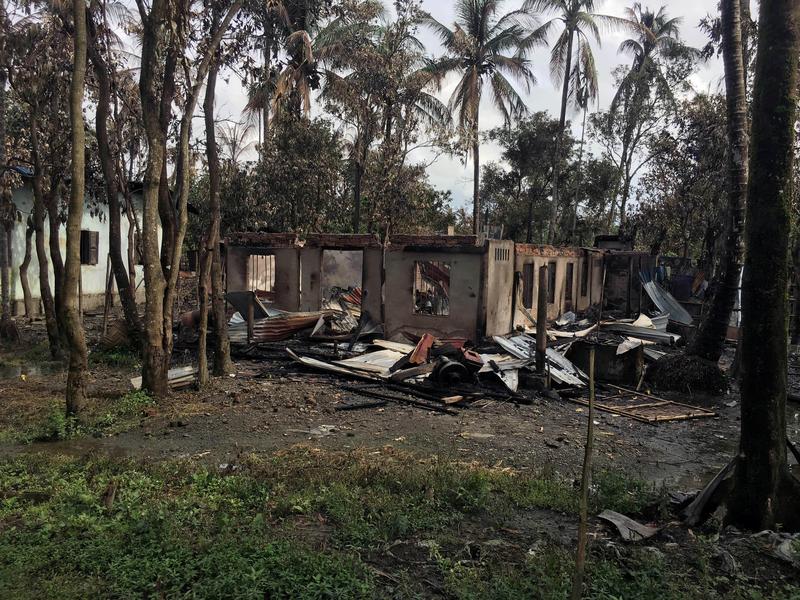At least 6,700 Rohingya Muslims, including many children, were killed in the first month of violence that erupted in Burma’s troubled Rakhine State in August, Medecins Sans Frontieres (MSF) said on Thursday.
The medical charity said the first major survey on the scale of mortality was the “clearest indication yet of the widespread violence” that began on 25 August, which has driven over 600,000 Rohingya across the border to Bangladesh.
Based on interviews at refugee settlements in Bangladesh’s Cox’s Bazar region, MSF estimated at least 6,700 Rohingya — including some 730 children below the age of five — were killed by violence between 25 August and 24 September.
The charity, also known as Doctors without Borders, said the figures were “the most conservative” estimates.
“We met and spoke with survivors of violence in Myanmar, who are now sheltering in overcrowded and unsanitary camps in Bangladesh,” MSF’s medical director Sidney Wong said.
“What we uncovered was staggering, both in terms of the numbers of people who reported a family member died as a result of violence, and the horrific ways in which they said they were killed or severely injured.”
Gunshots were the cause of death in most cases. Others were beaten or burned to death in their houses.
“We heard reports of entire families who perished after they were locked inside their homes, while they were set alight,” Wong said in a statement.
Mainly Buddhist Burma denies atrocities against Rohingya, and said in September that nearly 400 people died in the fighting, mostly Rohingya insurgents.
[related]
A top United Nations human rights official said last week that Burma’s security forces may be guilty of genocide against the Rohingya.
Bangladesh and Burma have agreed to cooperate on the repatriation of the displaced Rohingya but rights groups have cautioned against any hasty return before peace and stability is restored.
Save the Children said last week that testimonies from pregnant women and mothers who were subjected to brutal violence must serve as a warning.
“It is abhorrent to make these people return to a place they have just recently fled with no guarantee they will be safe and will not be left at the mercy of their persecutors once again,” its Bangladesh director Mark Pierce said in a statement.



